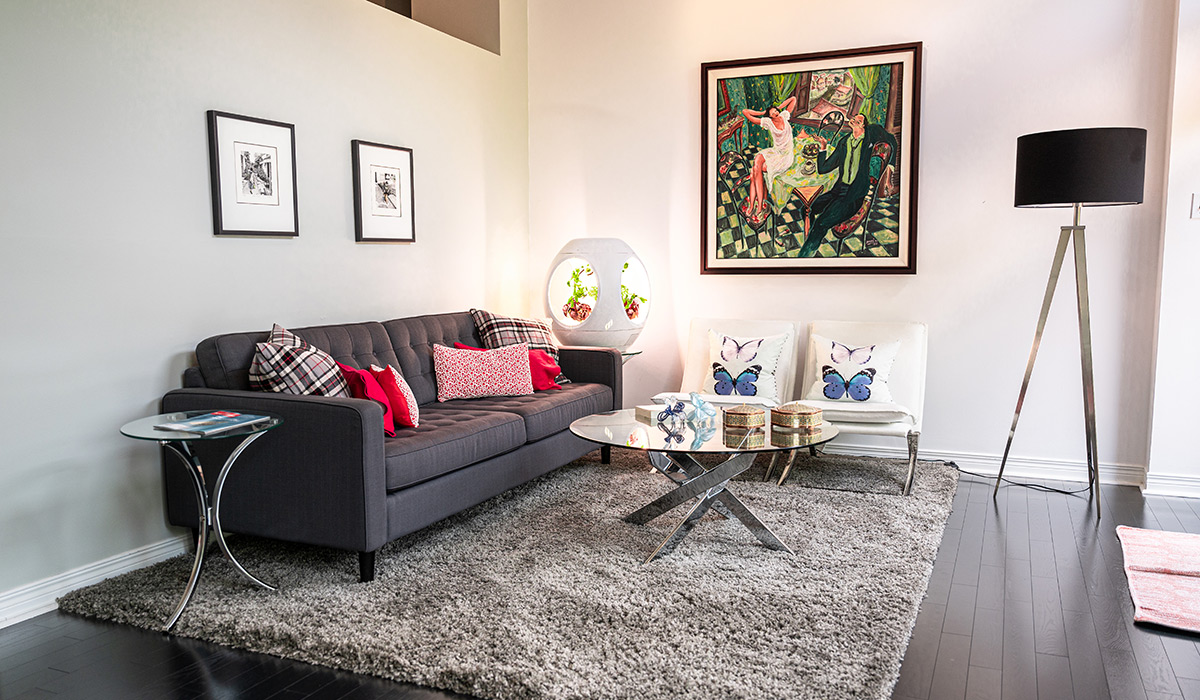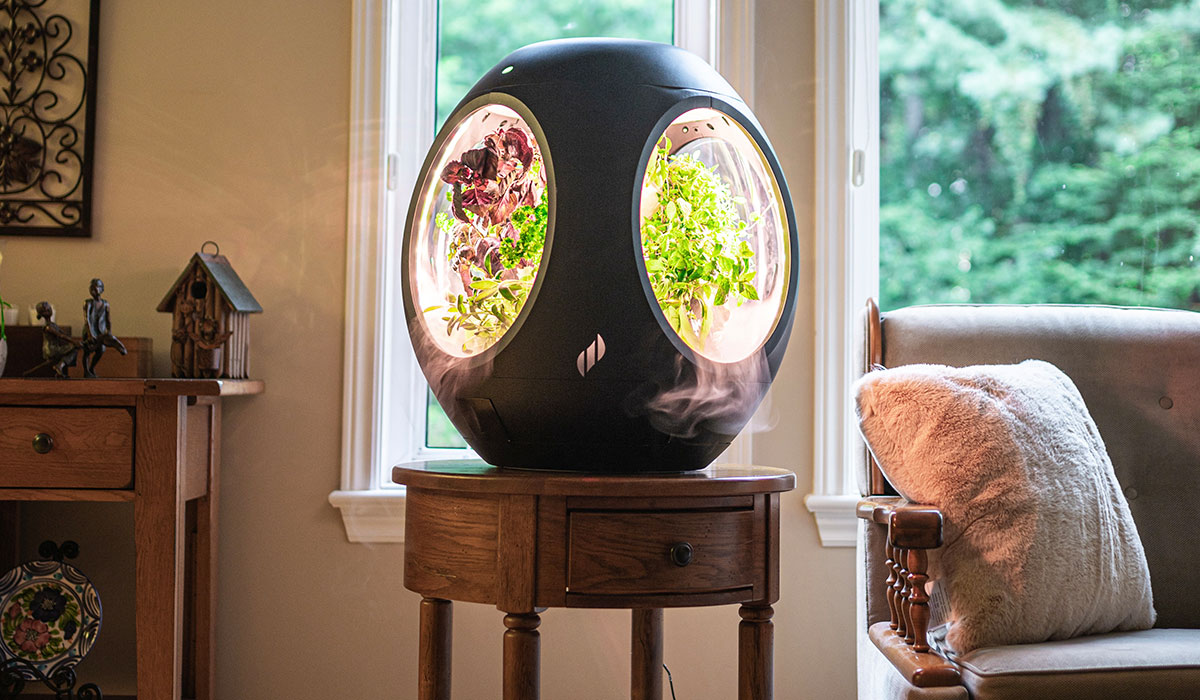Rejuvenate is made by Gatineau, Que., start-up Plantaform, whose founder and CEO is former Carleton University international business student Alberto Aguilar.
Manufactured in Montreal, the product allows people to grow vegetables, herbs and edible flowers at home, in all seasons, using minimal water and energy, no pesticides and very little fertilizer. This will help reduce the fuel required to transport fresh produce from far-flung farms to market and provide access to healthy, chemical-free food regardless of the price increases stemming from inflation and supply-chain bottlenecks.

The pods — which take up about four square feet of space — use “fogponics” to deliver nutrient-rich vapour to plants. The technology, with ultrasonic vibration transforming water into a fog-like vapour, was developed by NASA for potential use in space, but Aguilar and his team have found a much more earthly application.
“We wanted to focus on solving a problem that really matters,” says Aguilar, a serial entrepreneur who previously launched a company called YourDorm, which helped international and domestic students find homes, and co-founded Relomigo, which makes corporate relocation software. “We’re a green company that’s trying to help promote food security and sustainability.
“In the next 20 years, we’re going to have to double our food supplies to meet global demand. Supply chains are another huge issue. The average meal travels about 2,400 kilometres before it reaches your plate. Why can’t people grow fresh vegetables and herbs where they live?”
The former Carleton student was introduced to the fogponics concept by Kiwa Lang — who he attended high school with in Dubai — while the latter was studying industrial design at university in Australia. Now Plantaform’s chief product officer, Lang was doing research on the subject, liked Aguilar’s business acumen and, in 2019, showed his friend a homemade prototype.
Aguilar, who learned a lot at Carleton University’s Sprott School of Business and the Hatch incubation program, was all in.

Pandemic Raises Awareness About Food Security
In February 2020, Aguilar went to Indonesia for a month to learn about the manufacturing process and mass production. Then the COVID-19 pandemic hit, which made it more difficult to start a new company, but also convinced many people to become more self-reliant and begin growing vegetables at home.
Aguilar sold his remaining interest in Relomigo and bought a 3D printer, so he and Lang could iterate and optimize prototypes, sometimes spending long days bootstrapping it in their own apartments. They brought in more collaborators, including a former director at the National Research Council Canada, people with biology and electrical engineering backgrounds and hired head of marketing Brendan McGann, a recent Carleton economics graduate.
Media coverage in CTV, Radio Canada and other outlets caught the eye of Olivier Benloulou, a successful Gatineau entrepreneur who became an advisor and invested $250,000, helping the company raise more than $1 million and move toward production. Benloulou recently invested another $500,000 in Plantaform’s second seed round, allowing the company to finalize its commercialization plan.
“We spent about three years doing research and development,” says Aguilar, noting that while fogponics is in the public domain, Plantaform has a patent for integrating the technology into a vertical structure.
“Now we’re in the pre-commercialization stage. It’s taken a little longer than we expected, but that’s because we wanted to keep the product made in Canada for sustainability and supply chain reasons.”
With hundreds of units already pre-ordered, the company will start making Rejuvenate in late fall. They are available online and will be carried by select retailers in early 2023.

The pods can grow up to 15 different plants at the same time, from bok choy, kale and lettuce to basil and oregano, among other greens and herbs, with some maturing in as little as four weeks. Fogponics has been shown to produce higher yields than hydroponics, using 40 to 60 per cent less water, and more nutritious produce because of how the vapour delivers nutrients.
There’s another selling point beyond food security, says Aguilar: available in black or white, the egg-shaped “living pieces of furniture” will look good in a kitchen or living room and serve as conversation starters, getting more people curious about indoor growing.
“We want to make an impact,” says Aguilar, explaining that while most of the company’s resources are dedicated to Rejuvenate, he’s already talking to potential partners about testing the technology at a much larger scale.
“Creating a smart indoor garden was our first step toward educating the world about how important it is to grow your own food. But we’re scaling up right now into the indoor farming industry. That was the whole point of starting this company: we want to help feed the world of the future.”